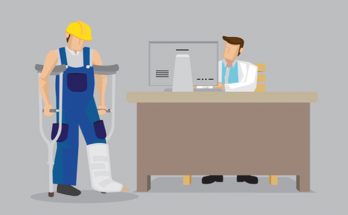Employers can avoid paying workers’ compensation insurance by forcing injured employees to return to work after being out injured. Although an employer may say the injured worker won’t have to perform their regular duties, an injury sustained during employment will likely result in a worse condition. Moreover, they may offer regular wages, which are not enough to cover the cost of future medical care. In addition, regular wages do not protect the injured employee from termination, and the employer may even threaten to terminate the employee unless they give up.
Can an employer stop paying workers’ compensation?
Can an employer stop paying workers’ compensation if you’re injured at work? There are two common situations when an injured worker can be fired and no longer receive compensation benefits. When an employer wants to stop paying benefits, they must provide the injured worker with a Notice of Suspension. If the injured worker has returned to work, an insurance company can file a petition to stop benefits. This happens when the employer thinks the injured employee is “faking it” or argues that the injury didn’t occur on the job. However, the injured worker has to agree to the request before the employer can stop paying benefits.
An employer wants to terminate benefits without notice. When workers are notified that they can no longer work, the employer must allow them to return to light-duty work. It must be made within ten days after the injury, and the injured worker must accept the offer. If workers refuse to return, they can have their benefits stopped.
Can an employee force an employer to carry workers’ comp?
Under workers’ compensation laws, every employer must carry a workers’ compensation policy. However, if an employer fails to carry coverage, it must notify its employees. Failure to have the insurance can result in a civil suit. In addition, workers are legally entitled to compensation for any injuries or illnesses sustained. Generally, employers must carry workers’ compensation coverage if they have more than two employees, regardless of whether or not they hire subcontractors.
State workers’ compensation laws are similar but differ slightly. In California, for example, employers are required to post a notice stating their insurance coverage. This notice must include the name of their workers’ compensation carrier and their claims adjuster. In addition, the same message must be given to new employees. This information is necessary to protect the employee in an accident and can make all the difference between a successful case and a costly one.
Can an insurance company stop paying?
If you are injured at work, you may wonder – Can an insurance carrier stop paying workers’ compensation? The answer is yes, but only if you agree. This will depend on several factors, such as the type of injury that caused the damage and whether you have any residual medical conditions. If you cannot return to work due to your injury, the insurance carrier can file a Notice of Suspension. The insurance carrier may also file a petition to terminate benefits after examining the injured worker. Essentially, if they believe you can return to work, they must agree to the termination.
In other words, an insurance company cannot stop paying your benefits unless you consent to it or a judge orders it. Therefore, once you have been incarcerated, you may be entitled to the benefit payments you are owed. However, if you decide to return to work, you will need to file notices asking the insurance company to resume paying your benefits. In such cases, your employer may be able to deny your claim if it’s in the best interest of the insurance company.
To stop payments, both the insurance company and employer must present evidence. If a judge finds that you were not treated properly, you will have an opportunity to appeal. If you cannot do so, you will have to present additional evidence to the court. If the insurance company refuses to offer you medical treatment, you may have other rights that can be protected by law. If you cannot provide evidence that your employer is not providing proper treatment, you can seek a court order to stop the payments.




